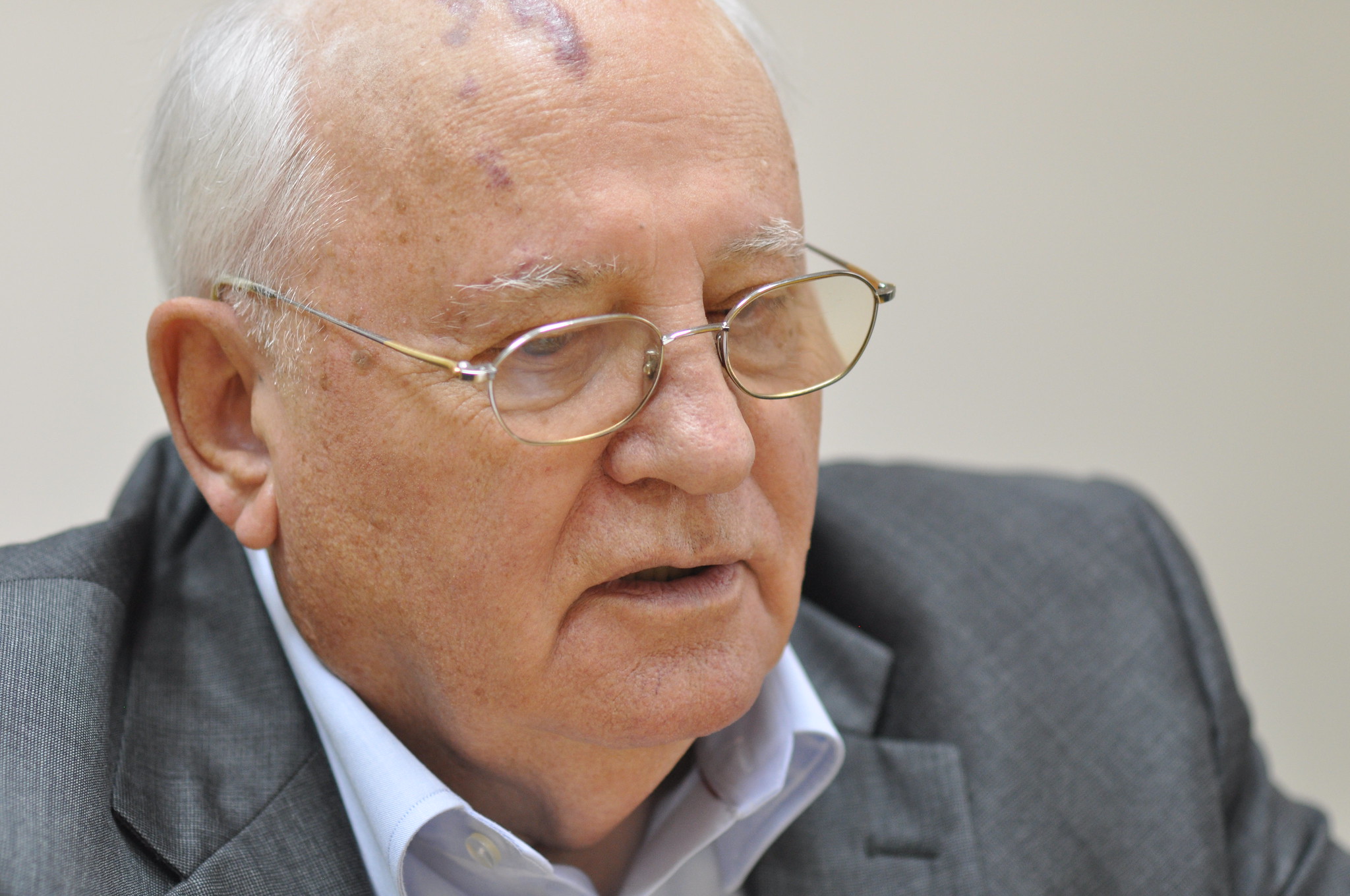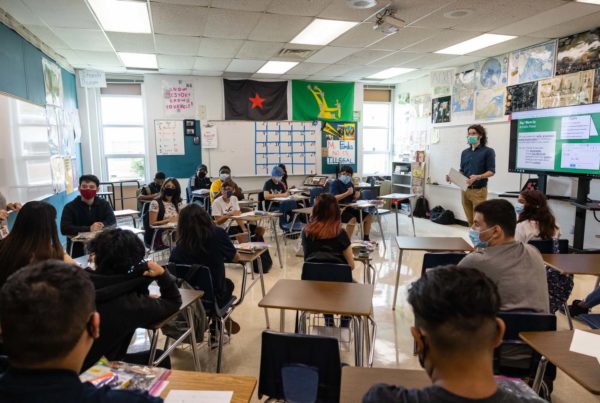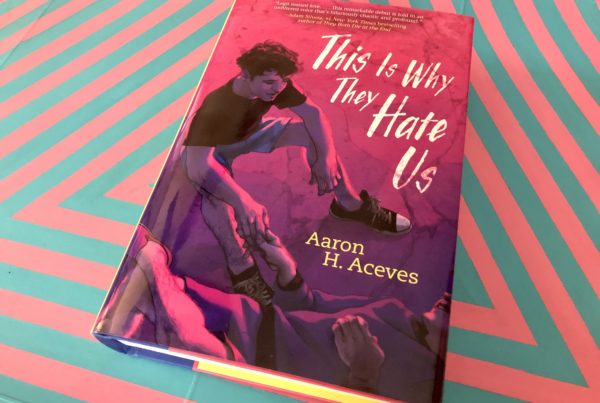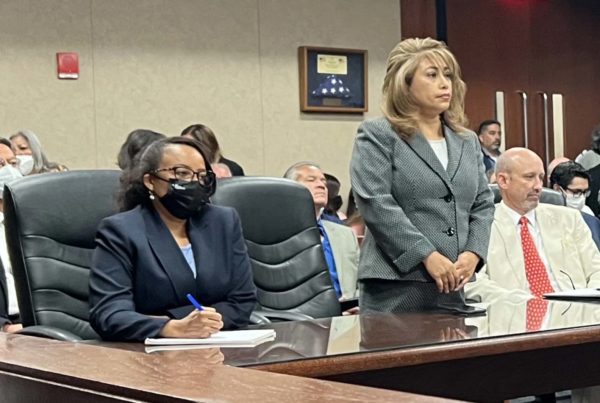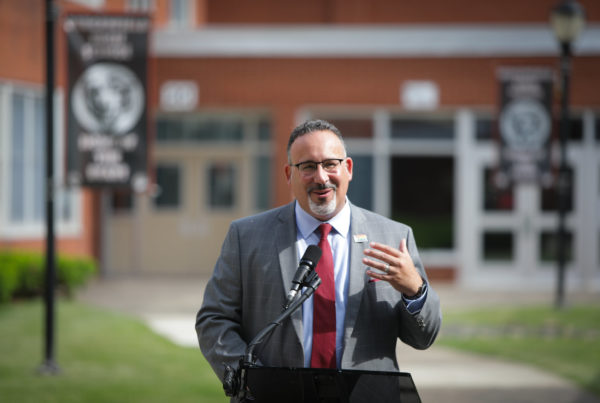One of the most significant figures in modern world history died Tuesday at age 91 in Russia: Mikhail Gorbachev, the last president of the Union of Soviet Socialist Republics.
He won the Nobel Peace Prize in 1990 for helping to end the Cold War without bloodshed, clearing the way for an open and free Europe – and ending years of isolation and depravation for the Russian people. But he unleashed forces that would eventually lead to the disintegration of the Soviet Union: something Russian president Vladmir Putin would later call “the greatest geopolitical catastrophe” in the history of the world. What to make of his legacy?
Jeremi Suri has been giving this a lot of thought. The Mack Brown Distinguished professor in the department of history and the LBJ School at the University of Texas at Austin joined the Texas Standard to share more.
This transcript has been edited lightly for clarity:
Texas Standard: Gorbachev didn’t seem to have too many Texas ties, but it must be said that in winding down the tensions of the Cold War, he worked pretty closely with a U.S. president who hailed from Texas: George H.W. Bush. And I think that’s perhaps hard to overstate the importance of this, since we’re talking about two global rivals whose tensions had very much defined much of the last half of the 20th century.
Jeremi Suri: Absolutely. And I would also add Secretary of State James Baker. We had two Texans in charge of American foreign policy – two Texans who came of age hating communists and hating the Soviet Union – and they found deep personal partnership in Mikhail Gorbachev. And I think much of that has to do with Gorbachev’s openness, his willingness to address issues that Americans cared about, and most of all, his desire to have a cooperative relationship with the United States. And if nothing else, Bush and Baker, like good Texans, they were dealmakers, and Gorbachev was someone they could make deals with.
In fact, in many ways, Gorbachev opened up Europe to what it is today: a more free, expansive Europe. And of course, many people are drawing the contrast with what Russia is doing with Ukraine at the moment.
Absolutely. I think one of the best moments in the presidency of George H.W. Bush was when the brave, courageous citizens of Hungary, East Germany, Czechoslovakia tore down the Berlin Wall. Gorbachev allowed that to happen; he made it clear he would not use military force as prior Soviet leaders had. And George H.W. Bush welcomed the destruction of the Berlin Wall. But he also was careful to make certain that he wasn’t using this as a way of embarrassing Mikhail Gorbachev. The goal was to create what Gorbachev called a common European home. I think we would call it a common West, a Western civilization, peaceful and co-operative for all people.
Of course, with the Soviet Union’s disintegration, I think it’s probably safe to say he was admired abroad, but rather despised at home. I think he ran for president of Russia in 1996 and got like 1% of the vote. And I guess I wonder what accounts for that – was it basically that a lot of people were nostalgic for the old Soviet Union? And I wonder how that factors into his overall legacy?
Well, I’ll say this, having spent a lot of time in Russia and having spent time talking to many people: I think Russians have gone through a much more extreme version of the transition our society is going through right now. When a different group of people are in charge of your society, when your society changes its composition, when you go through the change from one system to another, it’s very hard for people to adjust, and they often develop a false nostalgia for the past. We’re dealing through it with major changes in the composition of our society and the kind of economy we’re in. And look at the challenges we face. And these are nothing on the scale of what the Russians I knew faced in the late 1990s and the early 2000.
We need to also underscore how revolutionary it was that Gorbachev, who came up through the old system – you know, picking up all the requisite party credentials along the way – introduced perestroika and glasnost reform and openness. And that changed the entire game, not just for Russia, but for the United States and for much of the world.
You know, I would put Gorbachev in a category with Nelson Mandela in the sense these are two people who came of age in deeply flawed systems. And they found the capacity to change the system, but to change the system in a way that at all costs avoided violence and to change the system in ways that often undermined their own position. And that’s extraordinary. I think Mandela was probably even more courageous, but there was a courage in Gorbachev and an integrity. And growing up as a young person, as a high school student watching this and then as an early scholar studying it, for all his flaws, I think we have to declare Gorbachev one of the great men of the 20th century.


